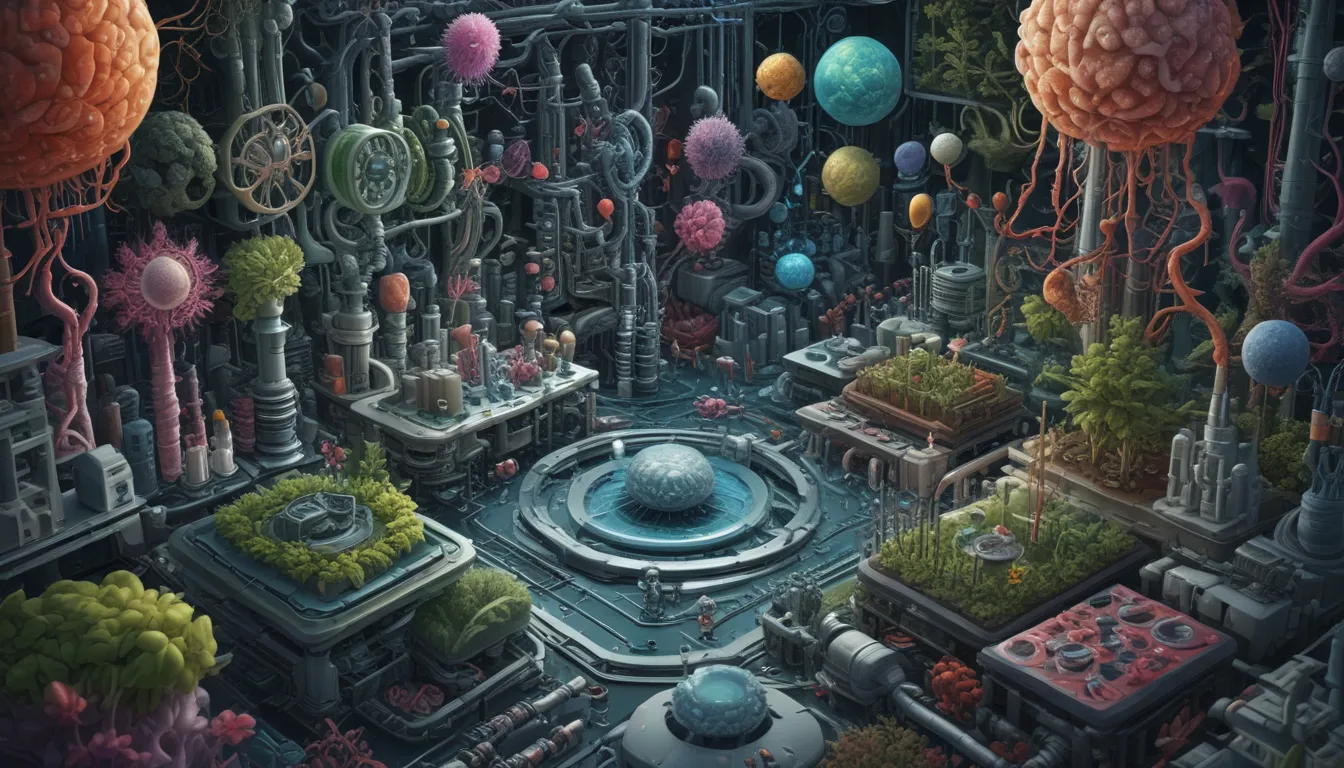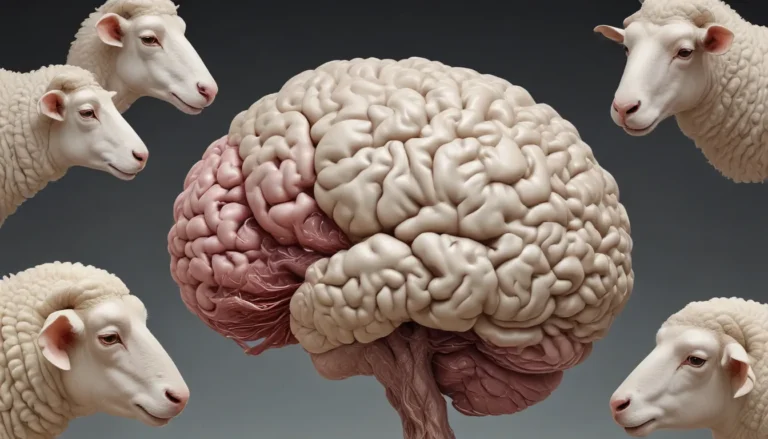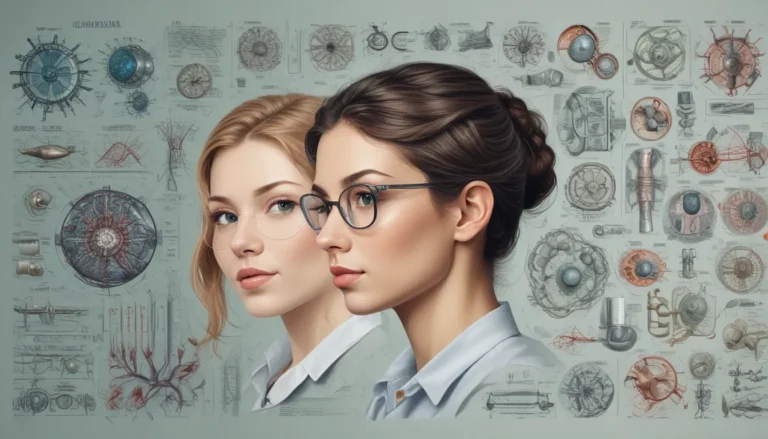A Note About Images: The images used in our articles are for illustration purposes only and may not exactly match the content. They are meant to engage readers, but the text should be relied upon for accurate information.
Welcome to the captivating world of synthetic biology, where science meets innovation and challenges the very essence of life itself. This emerging field has the potential to revolutionize the way we live, offering new possibilities and endless opportunities for advancement. Join us on a journey through the fascinating realm of synthetic biology as we uncover the essential facts, discuss intriguing applications, and delve into the ethical considerations surrounding this groundbreaking science.
Unveiling Synthetic Biology: Essential Facts
- Economic Impact: With over 350 companies spanning across 40 countries, the synthetic biology market boasts a phenomenal value of $3.9 billion worldwide.
- DNA Production: An astounding 230 million kilobases of synthetic DNA are produced annually, paving the way for groundbreaking discoveries and advancements in the field.
- Cheese Production: Surprisingly, 90% of hard cheeses in the United States are crafted using synthetic enzymes, demonstrating the wide-reaching applications of synthetic biology in our daily lives.
- Costly Innovations: The creation of the first synthetic genome came at a staggering cost of over $40 million, highlighting the substantial investments required for groundbreaking research and development.
A Journey Through Time: Historical Milestones of Synthetic Biology
- Pioneers: The term “synthetic biology” was first coined by French biologist Stéphane Leduc in 1910, setting the stage for a new era of scientific exploration.
- Evolution: Polish geneticist Wacław Szybalski provided the modern definition of synthetic biology in 1973, shaping the foundational principles of the field.
- Innovations: Over the years, key discoveries such as restriction enzymes in 1978 and the CRISPR gene-editing method in 1987 have propelled synthetic biology towards new horizons of possibility.
- Breakthroughs: From the synthesis of genes for the poliovirus in 2002 to the development of BioBrick Plasmids in 2003, each milestone has contributed to the rich tapestry of synthetic biology advancements.
The Future Unveiled: Fascinating Applications of Synthetic Biology
Biological Computers: The Future of Computing
Imagine a world where biological computers harness the power of life forms to perform complex computations. Scientists have successfully created biological computers using logic gate-like functions, enabling them to detect and combat diseases such as cancer with unparalleled precision and efficiency.
Biosensors: A Gateway to Environmental Detection
Biosensors represent a promising avenue for detecting contaminants in various environments. By engineering bacteria to glow in the presence of pollutants or explosive residues, scientists are paving the way for a new era of environmental monitoring and disease diagnosis.
Cell Transformation: Redesigning Life at the Molecular Level
Through cell transformation, scientists are rewriting the genetic codes of existing cells and life forms to unlock new capabilities. From producing antimalarial drugs on an industrial scale to creating nanomaterials, the possibilities of synthetic biology are as vast as the imagination itself.
Synthetic Proteins: Redefining Biological Functionality
The redesign of enzymes and proteins lies at the heart of synthetic biology, enabling scientists to enhance natural forms or engineer entirely new functionalities. From hemoglobin variants resistant to carbon monoxide to synthetic proteins in dairy products, synthetic biology is revolutionizing the way we interact with the biological world.
DNA Storage: Unleashing the Potential of Information Storage
As the ultimate information repository, DNA has become a key medium for storing vast amounts of data. Using synthetic DNA, scientists have archived entire research fields and literary works, ushering in a new era of data storage and retrieval.
Space Exploration: The Final Frontier of Synthetic Biology
NASA’s exploration of synthetic biology holds promise for space applications, with specially designed life forms envisioned as producers of raw materials for astronauts. By leveraging synthetic biology alongside 3D printing, NASA is pioneering new frontiers in sustainable space exploration and colonization.
Ethical Considerations: Debating the Implications of Synthetic Life
The Pursuit of Synthetic Life: A Moral Conundrum
As scientists inch closer to creating synthetic life forms, ethical dilemmas arise regarding the implications of playing God and altering the natural order. The prospect of synthetic life poses questions about rights, protections, and the impact on biodiversity, sparking complex debates within the scientific and ethical communities.
Biosafety Concerns: Balancing Progress with Responsibility
While synthetic biology offers boundless potential, biosafety remains a critical consideration. Engineered life forms may lack the safeguards of natural organisms, posing risks of environmental contamination and unintended consequences. Synthetic biologists prioritize safety protocols to mitigate these risks and ensure responsible research practices.
Regulatory Challenges: Navigating the Road Ahead
Calls for strict regulations and bans on human genome editing highlight the urgent need for ethical guidelines and oversight in synthetic biology. As governments grapple with the complexities of regulating a rapidly evolving field, scientists advocate for transparency, accountability, and proactive measures to safeguard the integrity of synthetic biology research.
Conclusion: Embracing Innovation with Responsibility
As we embark on a journey through the realm of synthetic biology, we are captivated by the possibilities, inspired by the innovations, and challenged by the ethical considerations that shape this dynamic field. By harnessing the power of science, technology, and creativity, we have the potential to transform the world and redefine the boundaries of life itself. Let us tread carefully, guided by wisdom, compassion, and a shared commitment to advancing knowledge for the betterment of humanity and the planet we call home.






